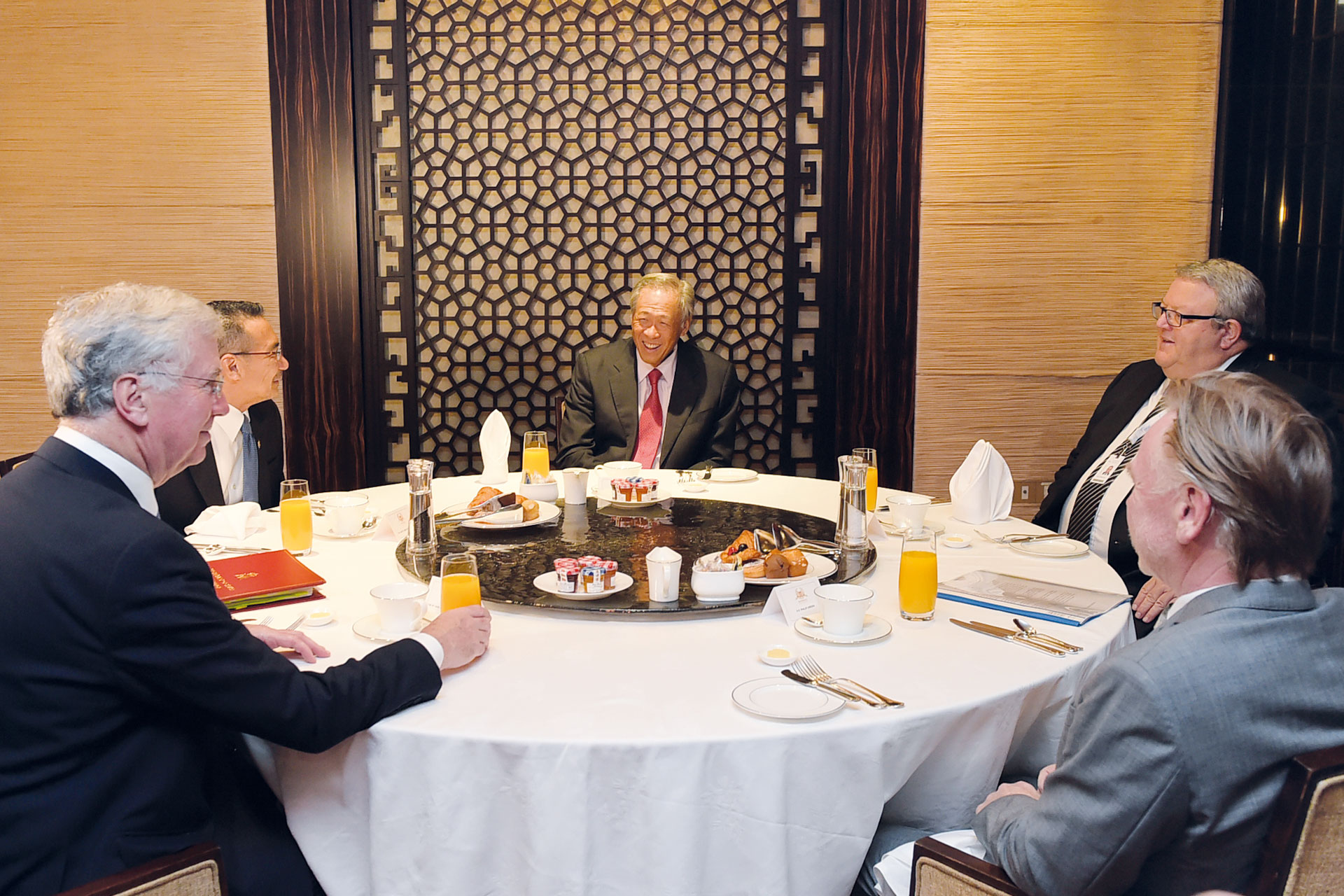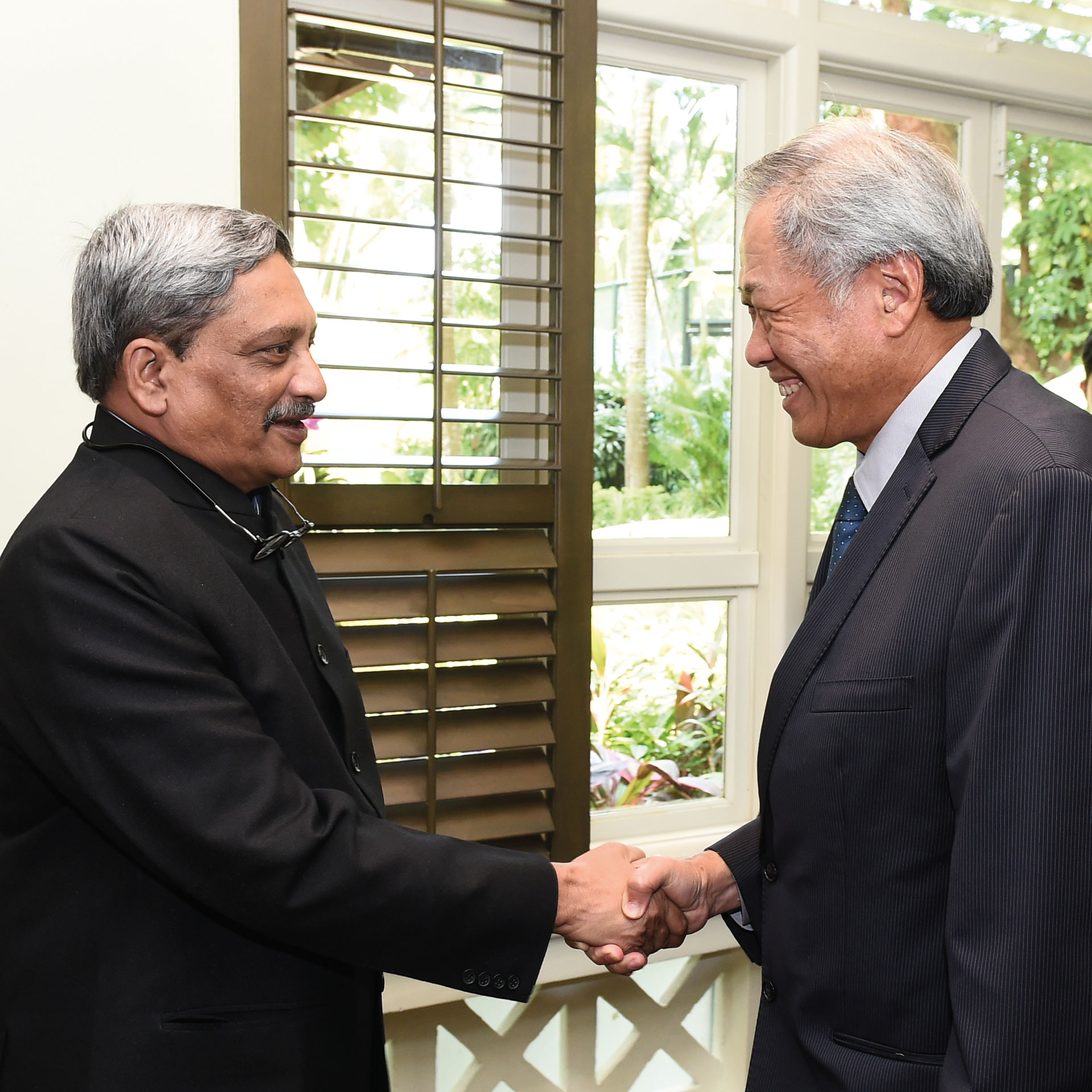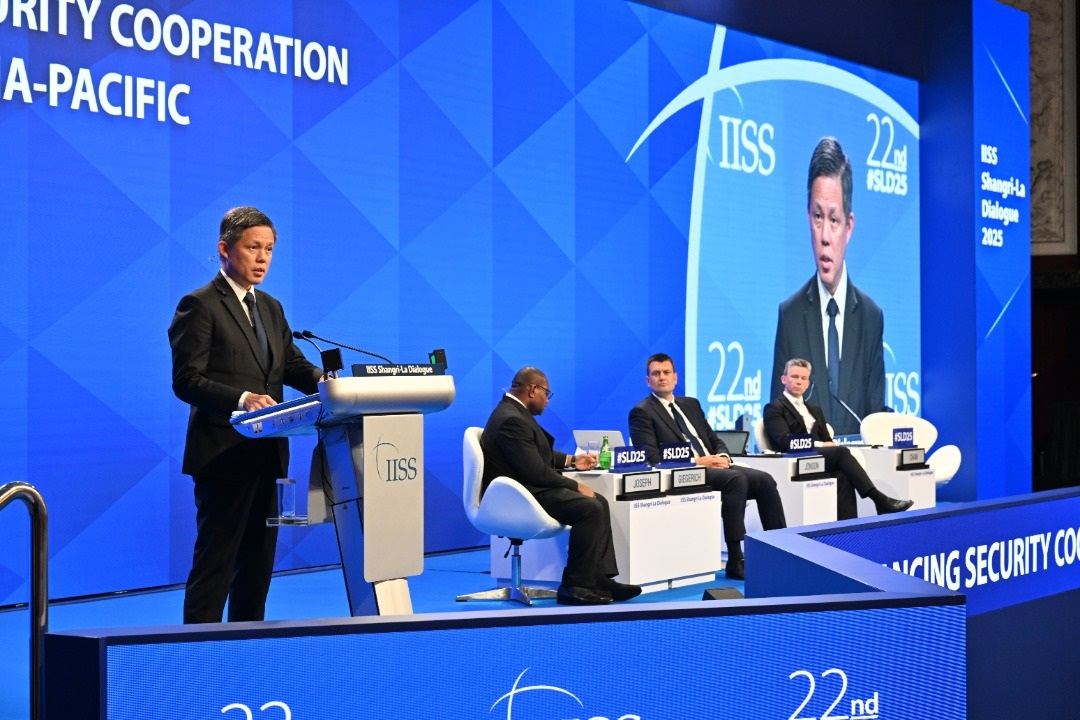DIPLOMACY
WORKING TOGETHER FOR REGIONAL STABILITY
12 Jul 2016
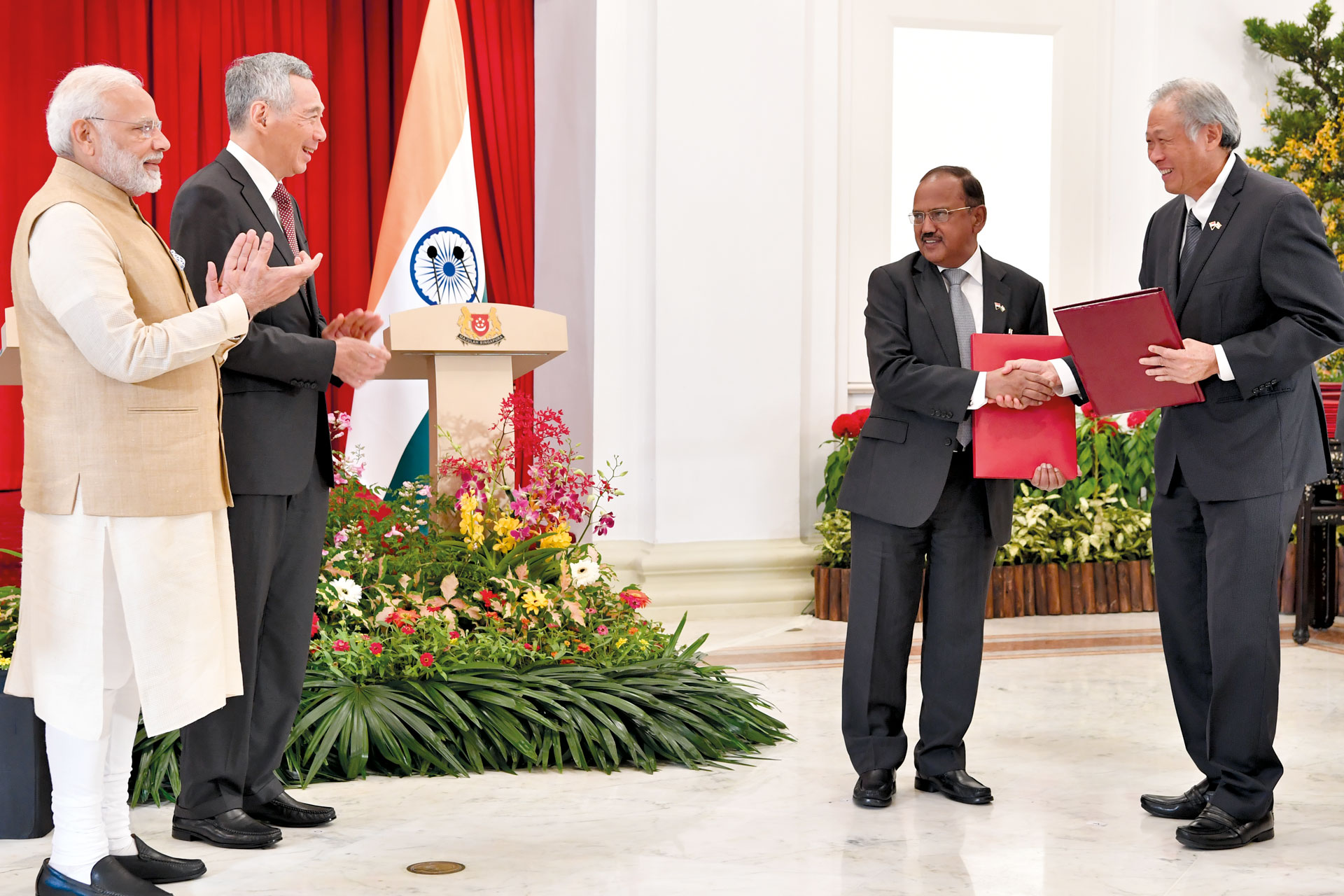
Speaking at the very first SLD held on 31 May 2002, the late Mr Lee Kuan Yew pointed out the two most important security challenges that the region would face in years to come: the United States (US)-China relationship and global terrorism.
Today, these concerns remain at the forefront, but the scale of the challenges and the players involved have evolved.
"(They) continue to take centre stage in the world," said Dr Ng. "Some main characters may have changed, but the main plot remains, albeit with different nuances and new complexities played out."
Dr Ng was delivering his speech, titled "Regional Security Challenges 15 Years On - Same Plot, Different Cast", on the closing day of this year's SLD which was held from 3 to 5 Jun.
On the pre-eminent power of the US and the rise of China in the context of the South China Sea territorial disputes, Dr Ng recognised the contributions of both countries to the region. Nonetheless, he acknowledged that the South China Sea and territorial disputes had deeper implications than purely a contest for territories.
Combating terrorism
Since the 9/11 attacks, terrorism has remained a prevalent and pervasive threat, albeit with different perpetrators. "It was sobering for all of us that when it came to terrorism, ministers from all around had something to say," said Dr Ng after a ministerial luncheon on 4 Jun.
Singapore, too, has not been immune to the situation, becoming a transit point for terrorists making multiple stopovers in an attempt to elude authorities.
More recently, Bangladeshi construction workers in Singapore were arrested for plotting attacks on their home country.
To tackle this threat, Dr Ng called on security forces to combat terrorism rigorously. He also urged nations to cooperate in this fight, saying: "Collectively, we must work closely together to build up joint responses and strengthen intelligence, surveillance and reconnaissance efforts. Where appropriate, we can combine resources for operations."
Dr Ng (centre) with Chinese Deputy Chief of Joint Staff Admiral Sun Jianguo (left) and Mr Carter before the luncheon.
Common interests
The fight against terrorism, like counter-piracy and maritime security, is a concern shared by countries in the Asia Pacific region. Thus, boosting cooperation between the US and Asia-Pacific nations is important.
"All of these (are) common interests that we, as countries, have, so it does make sense for us all to do more together," said US Secretary of Defence Ashton Carter.
"The American approach - and this is shared by most countries in the region - is an inclusive one in which everyone participates in the collective defence of our people from today's threats... It's based upon principle and non-exclusion, cooperation and common interests."
While in Singapore to attend the SLD, Mr Carter visited the Singapore Armed Forces (SAF) Imagery Support Group on 3 Jun, where he met SAF personnel from the Imagery Analysis Team previously deployed to the Combined Joint Task Force in Kuwait. This was part of Singapore's contributions to the multinational counter-Islamic State in Iraq and Syria (ISIS) coalition.
Thanking the servicemen for their contributions, Mr Carter expressed his gratitude for the opportunity to meet "one of the units that has made a very significant contribution to the counter-ISIS campaign".
Dr Ng (centre) hosting fellow FPDA counterparts (anti-clockwise from top left) Dato' Seri Hishammuddin Hussein, Mr Fallon, Mr Green and Mr Brownlee to breakfast.
Strong alliance
On the sidelines of the SLD, Dr Ng also hosted breakfast for Malaysian Defence Minister Dato' Seri Hishammuddin Hussein,
New Zealand Defence Minister Gerry Brownlee, the United Kingdom Secretary of State for Defence Michael Fallon, and Australian High Commissioner Philip Green on 4 Jun. This was to commemorate the 45th year of the Five Power Defence Arrangements (FPDA).
During the meeting, the ministers and High Commissioner released a Joint Statement to reaffirm member nations' commitment to the success of the FPDA. They also pledged their continued support for the conduct of professional and valuable exercises.
On the role of the FPDA, Mr Fallon noted: "The FPDA is five countries together...(and has the advantage of) being transparent; absolutely open about our work (and) the exercises we conduct together. And finally, the association is defensive. It is a defensive alliance contributing to the stability of the region."
First S'pore-India defence ministers' dialogue
On 3 Jun, Dr Ng (above, right) met his India counterpart Manohar Parrikar for the inaugural Singapore-India Defence Ministers' Dialogue.
During the dialogue, the ministers reaffirmed warm and longstanding defence ties, and pledged to enhance them further. They then released a joint statement that outlined how both countries will strengthen defence cooperation, such as in the areas of maritime security and counter-terrorism.
ALSO READ IN DIPLOMACY
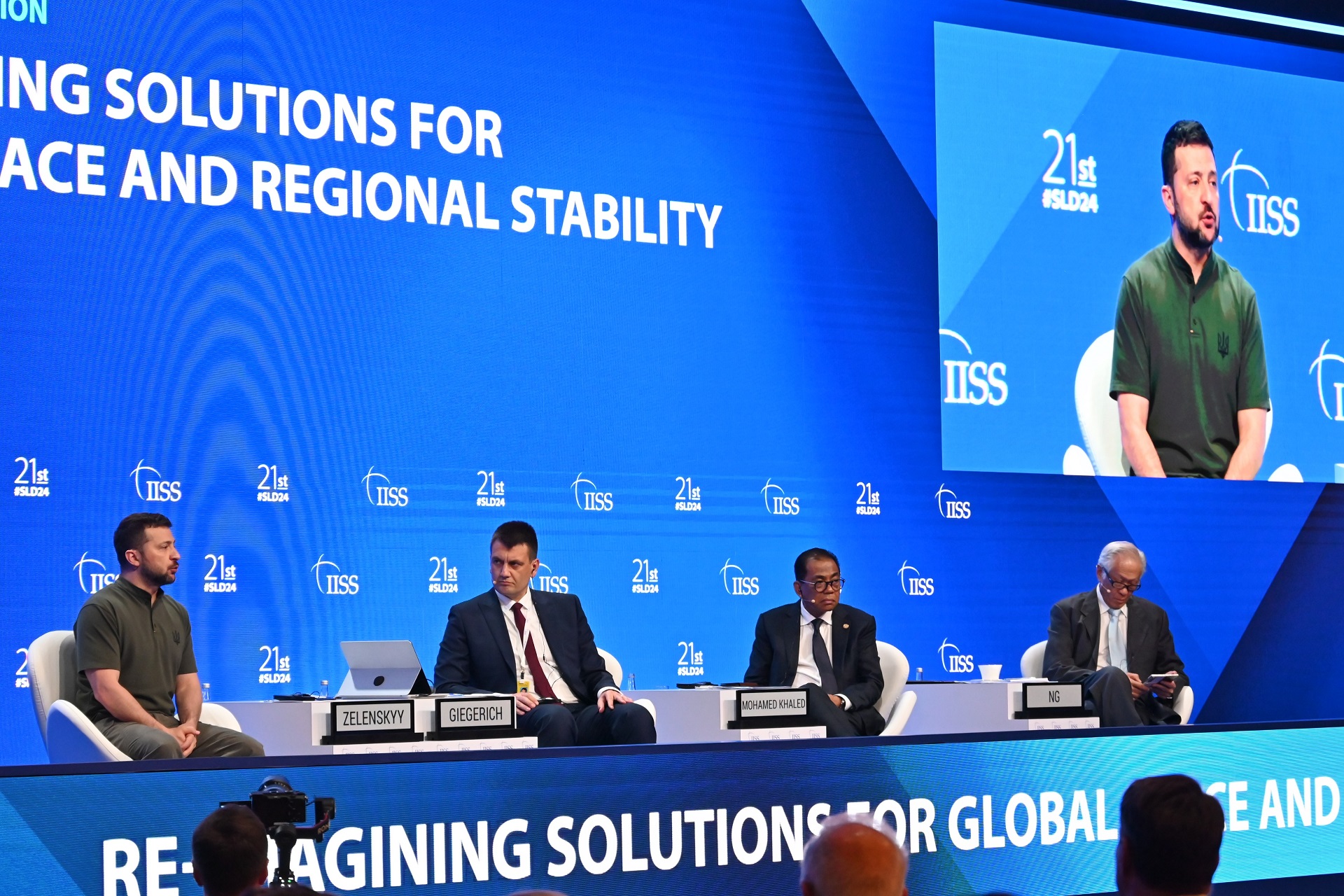
A call for peace at Shangri La Dialogue
02 Jun 2024
A repeated call for peace, especially in Asia. This was Minister for Defence Dr Ng Eng Hen's central message at the 21st Shangri La Dialogue (SLD), held from 31 May to 2 Jun.
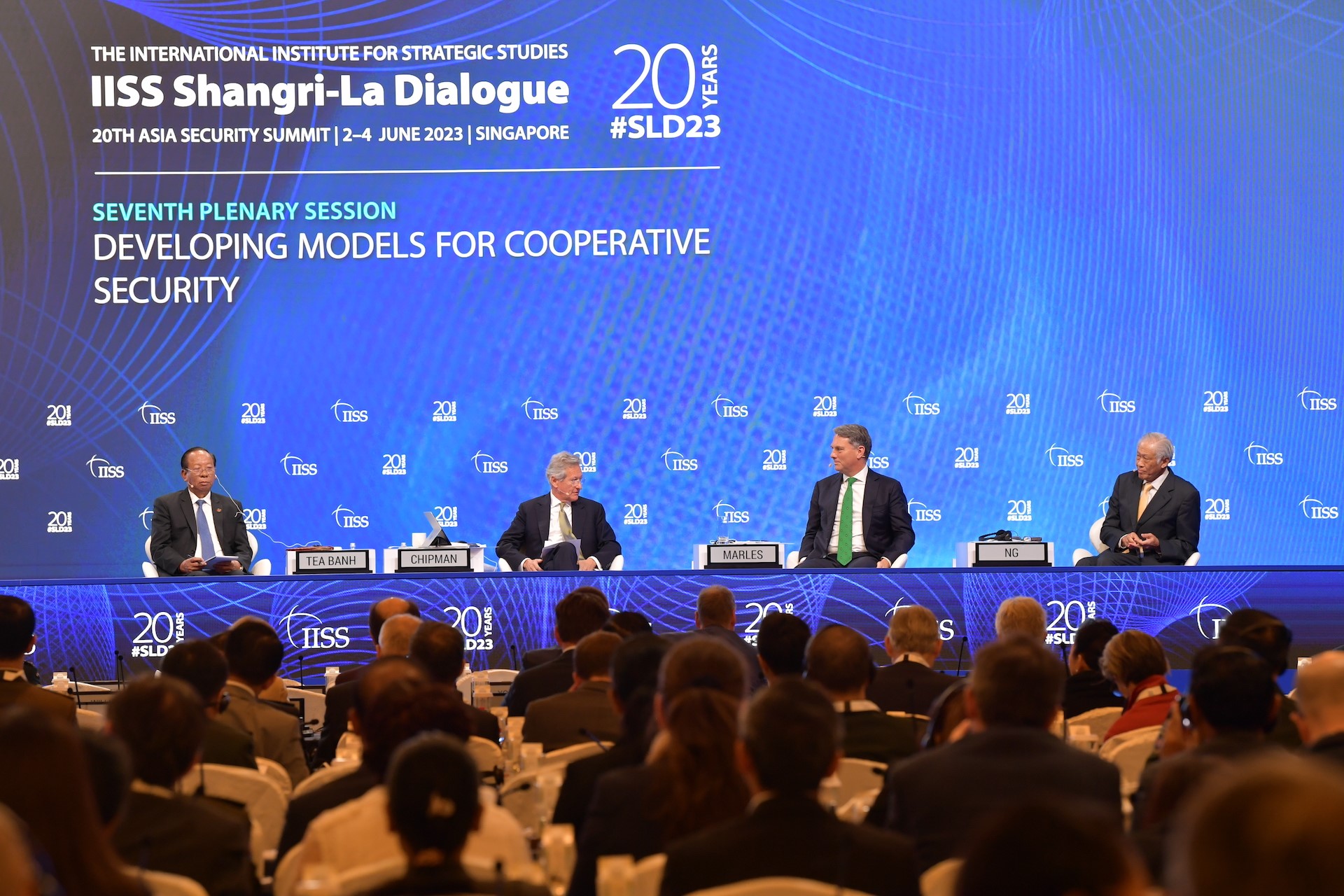
Shangri-La Dialogue sees frank discussion of security issues
04 Jun 2023
The 20th Shangri-La Dialogue, held from 2 to 4 Jun, saw ministers from around the world meet in Singapore to discuss key defence and security issues.
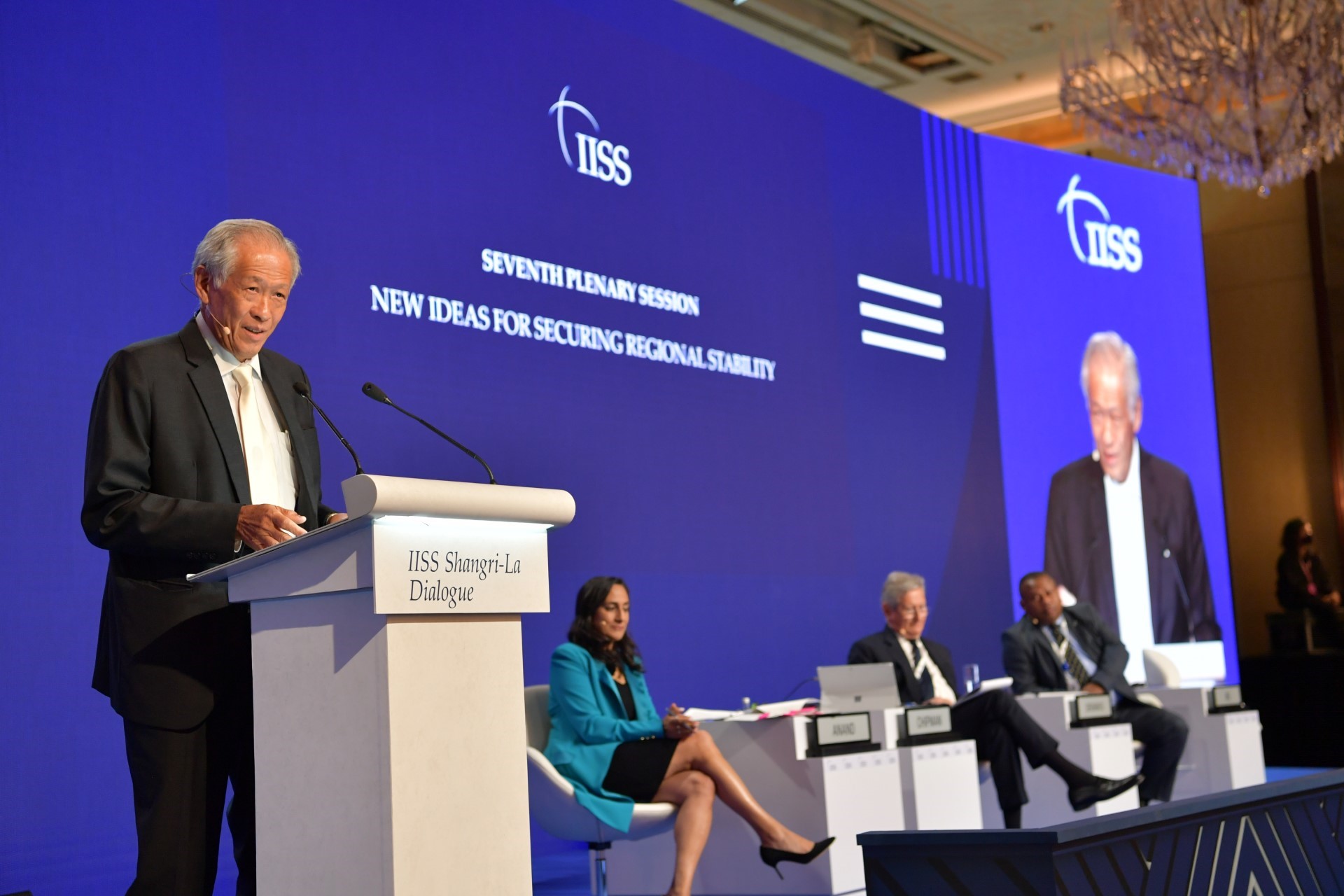
SLD remains valuable platform for crucial discussions: Dr Ng
12 Jun 2022
Minister for Defence Dr Ng Eng Hen spoke on the US-China relationship, the importance of a rules-based order and the role of ASEAN as a regional security platform at the 19th Shangri-La Dialogue (SLD).



